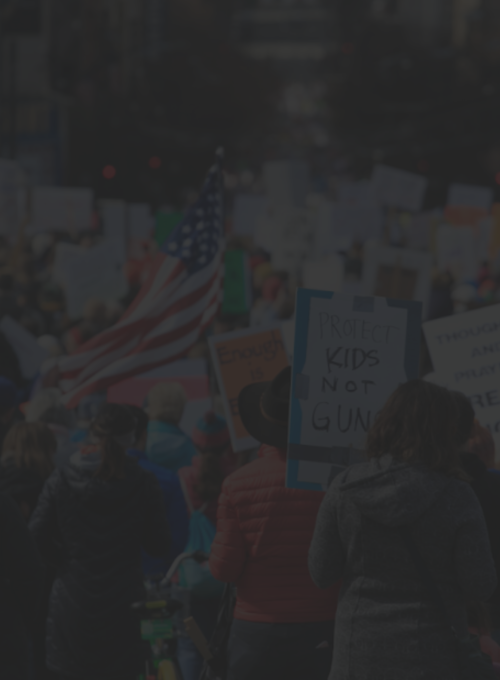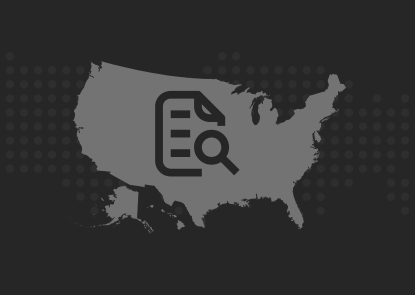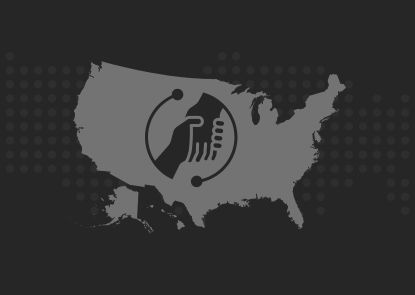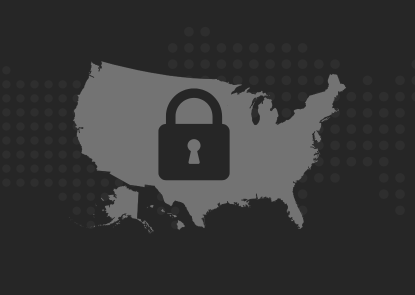
National Survey of Gun Policy
Americans broadly agree on many gun violence prevention policies, according to new 2025 survey data.
A 2025 nationally representative survey conducted by researchers at the Johns Hopkins Center for Gun Violence Solutions found wide support for gun violence prevention policies across political lines and among both gun owners and non-owners.
The 2025 Johns Hopkins National Survey of Gun Policy survey included 2,977 respondents, 1,001 gun owners and 1,976 non-gun owners and 959 Republicans and 1,419 Democrats. The survey was fielded from January 6–24, 2025.
The Johns Hopkins National Survey of Gun Policy has tracked Americans' views on gun policies every two years since 2013. The survey consistently finds broad public support for firearm policies based on public health research and evidence.

Safe and secure gun storage policies are shown to prevent mass shootings, suicide, theft, and unintentional shootings. Responsible gun ownership is not only about how, where, and when a person uses their firearm; it’s also about how they store it when not in use. 74% of Americans support laws that require a person to lock up the guns in their home when not in use.
Research has demonstrated decreased risk for suicide among adolescents when guns are stored safely. A 2025 study by experts at the Center, found states with Child Access Prevention laws that require guns to be stored in a safe manner in households with children see lowered suicide rates by up to 14% in youth ages 1-17 years old. Lethal means safety counseling, a patient-centered health care approach to reducing risk and harm from lethal means, can also encourage safe gun storage practices and save lives.
“Safe gun storage saves lives. As a pediatric intensive care physician, I see children who are critically injured and even killed after gaining access to unsafely stored firearms. Keeping guns stored unloaded and locked prevents unauthorized users (such as children) from getting access to and then getting injured by firearms in their homes,” says Katherine Hoops, MD, JD, MPH, Director of Clinical Programs & Practice at the Center.
- Nearly two-thirds of gun owners (62%) and a large majority of non-gun owners (81%) support laws requiring gun owners to keep firearms locked when not in use.
- Since 2023, support increased across each group including a 4% increase among gun owners and a 6.5% increase among Republicans. Overall, support increased 2% from 2023.

Research shows permitless carry laws can threaten public health in many ways including allowing individuals who have a history of acting violently to carry their firearms in public, providing more opportunities for armed intimidation and shootings in response to hostile interactions, and increasing criminals’ access to guns through thefts from vehicles. Only 24% of Americans support allowing a person to carry a loaded firearm in public, without obtaining a permit or license.
Public carry laws regulate who can carry a loaded, concealed handgun in public spaces. They may also limit or ban public carry of firearms in sensitive locations such as polling places, protests, or establishments that serve alcohol. Permissive open and concealed carry laws are promoted as making it easier for individuals to defend themselves against crime, but these laws have been shown to increase gun violence.
"States are increasingly abandoning the permit requirement in favor of permitless carry, and some of the strongest laws face litigation," says Alex McCourt, JD, PhD ‘19, MPH, core faculty member at the Center. "Permitless carry of firearms may elevate the risk of firearms being used inappropriately in response to interpersonal conflicts, disputes, or other potentially volatile situations."
- Over one-third of Republicans (36%) and gun owners (37%) support permitless carry.
- Support stayed steady or increased slightly among each group surveyed. Overall, support increased 1% from 2023.

Firearm Purchaser Licensing Laws, also known as permit-to-purchase, require an individual to apply for and obtain a license before purchasing a firearm. In most states with this policy, the process includes submitting an application to state or local police, getting fingerprinted, undergoing a thorough background check, and often involves safety training requirements. These laws are a complement to existing background check systems. 72% of Americans support requiring a person to obtain a license from a local law enforcement agency before buying a gun.
Connecticut’s 1995 handgun purchaser licensing law was associated with a 28% reduction in the state’s firearm homicide rate and a 33% reduction in the state’s firearm suicide rate from 1996 to 2017.
“Requiring a license or permit to purchase a handgun reduces firearm homicides and suicides, as well as diversions of guns for crime use, and shootings of law enforcement officers. It is one of the most effective policies we have to reduce gun violence,” says Cassandra Crifasi, PhD '14, MPH, Co-Director of the Center.
- More than half of gun owners (61%) and Republicans (63%) support this policy.
- Since 2023, the largest decrease in support came from Democrats (-5%). Support amongst Republicans and non-gun owners increased by 2% each.
- Overall, support stayed consistent from 2023 (72%).

Community Violence Intervention (CVI) programs focus on individuals most at risk of being a victim of or committing an act of gun violence. CVI provides a public health approach to gun violence prevention, addressing the unique needs of the community where systemic racism, disinvestments, and trauma occur. 72% of Americans support funding community-based gun violence prevention programs that provide outreach, conflict mediation, and social support for those at high risk of gun violence.
Various models of CVI programs have been utilized to reduce gun violence by engaging credible messengers to reach individuals at highest risk, mediate potentially violent conflicts, promote nonviolent responses to conflict, connect people to social services, and provide life-coaching support.
“Despite the deep challenges faced by communities that have experienced high rates of gun violence, research has shown that investments in targeted and well-implemented public health solutions can save lives and reduce trauma from gun violence,” says Daniel Webster, ScD '91, MPH, Distinguished Research Scholar at the Center.
- A majority of gun owners (67%) and Republicans (59%) support funding for programs that can reduce violence through conflict mediation and other social supports.
- Overall, support for funding CVI initiatives increased 3% from 2023. Support among gun owners increased by 5% over the past two years.

An Extreme Risk Protection Order (ERPO), also known as a 'red flag' law, is a civil order with due process protections that temporarily restricts firearm access for an individual who is behaving dangerously or presents a high risk of harm to self or others. An ERPO is issued by a court when someone is at risk of violence, including suicide and assault. Depending on a state’s ERPO law, family or household members can ask the court to temporarily remove a person’s access to firearms if they are at elevated risk of harming themselves or others. 77% of Americans support allowing family members to ask the court to temporarily remove guns from a relative who is at risk of harming themselves or others.
ERPOs can also be used to address threats of mass shootings. A 2022 study from researchers at the Center that analyzed nearly 6,800 ERPO cases from six states (CA, CO, CT, FL, MD, WA) found that 10% involved the threat of killing at least three people. The policy has also shown promise in reducing firearm suicides. A 2024 multi-state study from a team of researchers, including those from the Center, estimated that one life was saved for every 17—23 ERPOs issued.
“ERPOs and DVPOs are two powerful examples of how we’re leveraging evidence to shape effective interventions and implementation strategies that improve the safety and well-being of families and communities across the country,” says Shannon Frattaroli, PhD '99, MPH '94, core faculty member at the Center.
- A vast majority of Democrats (87%) support this policy, as do most Republicans (70%).
- Gun owners (71%) and non-gun owners (80%) also largely support this policy.
- Overall, support for Extreme Risk Protection Orders was similar to 2023 (76%).

In some states, licensed health care clinicians may petition for an ERPO for a patient that is behaving dangerously or at an elevated risk of harm to themself or others. In other states, clinicians can work with law enforcement to initiate an ERPO. 77% of Americans support allowing licensed health care clinicians to ask the court to temporarily remove guns from a patient who is at risk of harming themselves or others.
Clinicians can educate the community about the ERPO process, connect individuals to behavioral health services and other supports, and, when available, to safe gun storage resources. They play a key role in addressing underlying issues before an ERPO expires.
"Clinicians are well positioned to really evaluate risk," says Paul Nestadt, MD, core faculty member at the Center and Medical Director of the Johns Hopkins Center for Suicide Prevention. "The ERPO process allows us to temporarily remove firearms from a situation—giving us a chance to address the crisis without the immediate risk that comes with easy access to guns."
- Almost three quarters of gun owners (70%) and Republicans (69%) support allowing licensed health care clinicians to directly ask the court for an ERPO.

"The public health approach to gun violence prevention tells us that we need to look upstream and prevent violence before it occurs. Extreme risk protection orders do just that," says Lisa Geller, MPH, Senior Advisor for Implementation at the Center. "Data from around the country shows us that ERPOs are a promising tool to preemptively stop acts of gun violence."
76% of Americans support allowing law enforcement officers to ask the court to temporarily remove guns from an individual who is at risk of harming themselves or others.
In every state with an ERPO law, law enforcement can petition the court to issue an ERPO to temporarily restrict an individual’s access to firearms when they are behaving dangerously or at an elevated risk of harm to themself or others. In most states, law enforcement are also responsible for serving the ERPO petition and removing firearms from respondents’ possession.
- Nearly 7 out of 10 gun owners (68%) and Republicans (69%) support allowing law enforcement officers to ask the court for an ERPO.

Domestic Violence Protection Orders (DVPOs)—sometimes referred to as domestic violence restraining orders—are civil court orders to protect victims and survivors of domestic abuse, including from dating partners. Federal law prohibits individuals subject to a DVPO from purchasing or possessing firearms. 82% of Americans support prohibiting a person subject to a temporary domestic violence protection order from having a gun for the duration of the order.
Research demonstrates that the stronger the DVPO protections, the clearer the life-saving benefits for victims and survivors. DVPOs that require firearm removal are associated with a 12% reduction in intimate partner homicide.
“We know that firearms are used in over half of intimate partner homicides. Ensuring that domestic abusers are prohibited from purchasing and possessing firearms and that they are actually removed from abusers hands is critical to safeguarding lives of victims and survivors,” says Spencer Cantrell, JD, core faculty member at the Center.
- Gun owners and non-gun owners alike largely support prohibiting firearm access in these dangerous situations, at 79% and 84%, respectively.
- For more than a decade, support among Americans for restricting people under DVPOs from owning a gun has remained near or above 80%.
- Support for this policy stayed steady, increasing 1% since 2023.
About the National Survey:
The 2025 Johns Hopkins National Survey of Gun Policy was supported by the Robert Wood Johnson Foundation. The Johns Hopkins National Survey of Gun Policy has tracked Americans’ attitudes about gun policies every two years since 2013. The survey was fielded from January 6 to 24, 2025.
The Johns Hopkins National Survey of Gun Policy has tracked Americans’ support of gun policies every two years since 2013. The 2025 survey included 2,977 respondents including 1,001 gun owners and 1,976 non-gun owners. The breakdown by political party affiliation of survey respondents was 959 Republicans and 1,419 Democrats.
Survey results from previous years:
Find more information & resources on gun policies:
We don’t have to live with gun violence as a normal part of American life. Evidence-based solutions and prevention strategies can reduce firearm-related harm and save lives.




